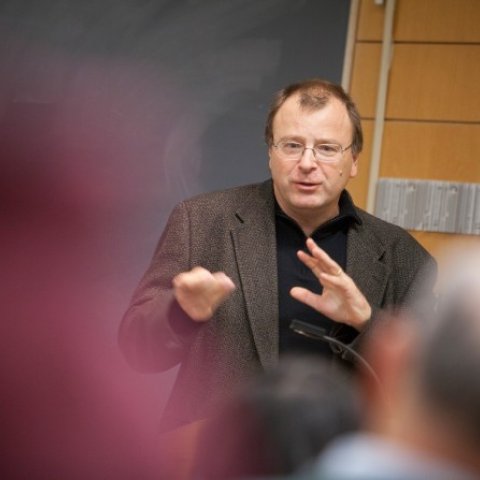Cornell Chronicle
Weill Cornell Medicine and colleagues in Tanzania are fostering a new generation of M.D./Ph.D. researchers, with implications for improved health care outcomes worldwide.
Source
The "High-Level Expert Group" will develop recommendations for measures that complement or go beyond Gross Domestic Product (GDP).
Source
The business students traveled to a rural region of Peru to brainstorm sustainable business ideas for a local community.
Source
In honor of our colleague Nicolas van de Walle (1957-2024), the Einaudi Center's Institute for African Development is cohosting a conference on African political economy.
Source
New Cornell research reveals that social media users with disabilities prefer more personalized content moderation powered by AI systems that not only hide harmful content but also summarize or categorize it by the specific type of hate expressed.
Source
A new study shows that when Indians and Americans used an AI writing assistant, their writing became more similar, mainly at the expense of Indian writing styles. Senior author on the paper Aditya Vashistha is funded by our Global Grand Challenge: The Future.
Source
The Cornell Atkinson Center for Sustainability’s 15th-anniversary conference addressed past successes and future efforts to support climate and sustainability.
Source
A new archive of Venezuelan migrant testimonies is available to researchers at Cornell. An April 18 symposium hosted by Einaudi Center programs and the Cornell Library launched the collection.
Source
Qi Wang, the Joan K. and Irwin M. Jacobs Professor of Human Development in the College of Human Ecology, teams up with Andrew Hoskins from the University of Edinburgh on a new book, The Remaking of Memory in the Age of Internet and Social Media.






